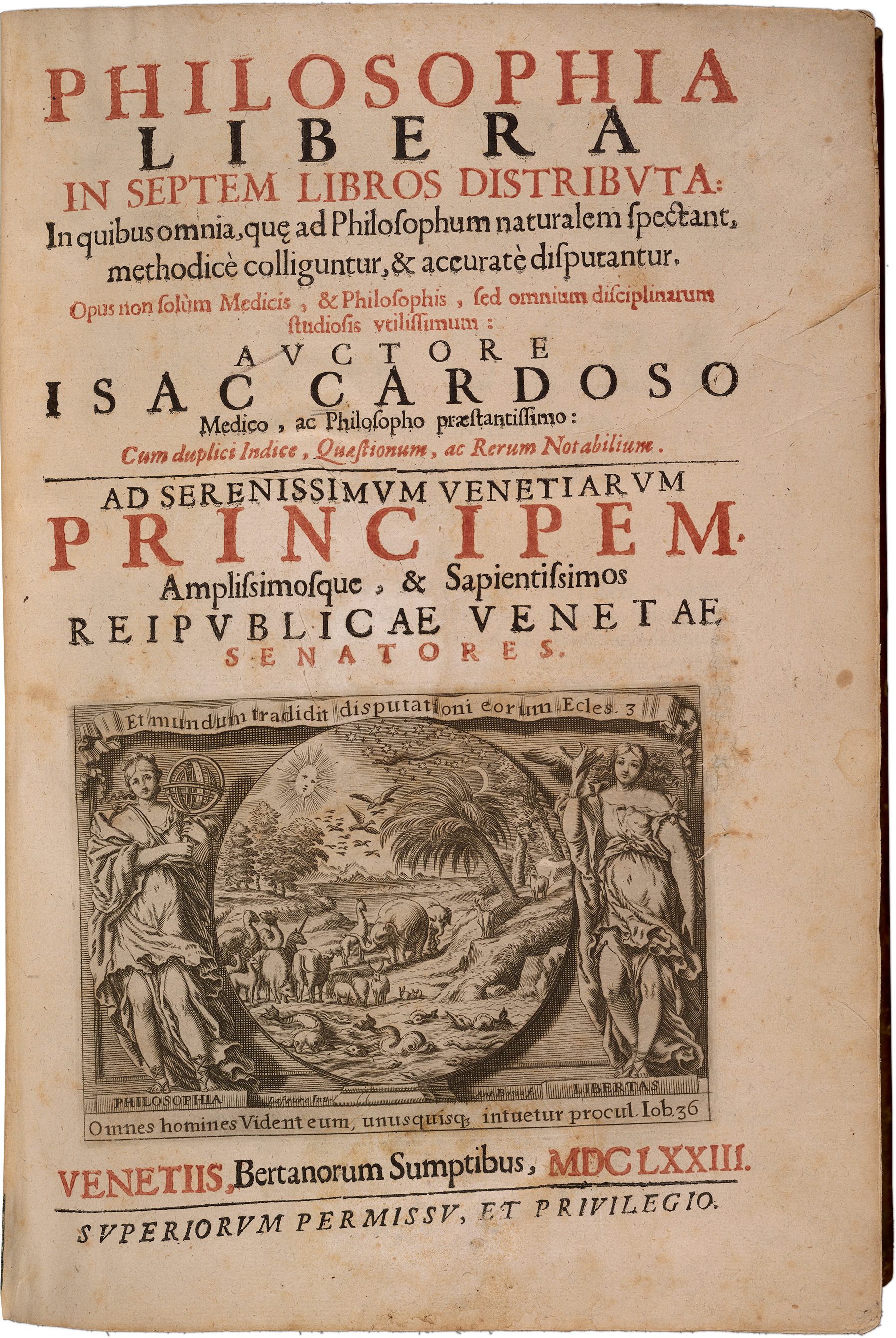The physician and philosopher Isaac Cardoso (d. 1683), who began life as a converso in Spain and died a professing Jew in Italy, published a lavish folio volume in 1673 entitled Philosophia Libera. Cardoso had received his medical education in Salamanca, and published his book in one of Europe's most important printing centers: Venice. The book is a schematic survey and critique of the history of philosophy, and contains much information on the Jewish origins of philosophy and science. Two scriptural quotations are prominently featured on the frontispiece. One is directly related to the book's theme, and is taken from the thirty-sixth chapter of Job. Elihu proclaims the majesty of God''s creation: "All people have looked on it; everyone watches it from far away." Cardoso's aim was to "look on it" from a much closer perspective. Indeed Philosophia Libera does so and offers a fine justification for studying nature: "we shall investigate Nature and its Founder, so that from the world and its multitude of things, as if by a ladder, with enlightened and instructed mind, we may be lifted to God its Maker; for His creatures are the ladder by which we ascend to God, the organ with which we praise God, and the school in which we learn God." There is perhaps no better summary of Cardoso's mission, as well as that of scientifically-inclined Jews in Italy and Spain from the Middle Ages through the Enlightenment.
Which exhibit?
Page: Featured item
Order on exhibit page
1
Turn off the details link on the exhibit page
Off
